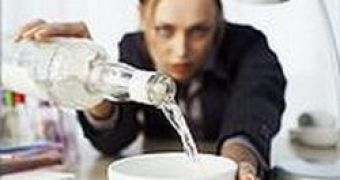It is well known that both stress and alcohol cues can inflict cravings and relapse in alcoholic patients trying to treat themselves.
A new research explained how these two factors act differently on the brain to induce craving, which lowers the chances of a successful treatment. "Alcoholics frequently cite psychological stress and cues that lead to negative mood states -- such as anxiety, depression, anger and confusion -- as reasons for relapse to drug use," explained Helen Fox, associate research scientist at Yale University School of Medicine and corresponding author for the study. "However, it appears that stress and cues might work differently in the brain to affect craving." said Suzanne Thomas, assistant professor of psychiatry at the Medical University of South Carolina.
"More specifically, it is possible that two of the major causes of relapse in alcoholics have a very different psychobiological profile. A clarification of these differences may help to develop more tailored therapy for both the reward and distress components of craving," said Fox.
20 (18 males, 2 females) alcoholic patients were exposed to a brief five-minute guided imagery test that included three personal aspects: a recent stressful situation; an alcohol-cue-related situation; and a neutral, relaxing situation. In the three situations, the researchers measured alcohol craving, anxiety and emotion levels, cardiovascular levels, and salivary measure of the stress hormone cortisol.
Both stress and alcohol cues appear as being able to produce increases in anxiety associated with alcohol craving. "However the specific psychobiology associated with each does indeed appear to be different. While stress-related craving was associated with an increase in negative emotions such as anxiety, anger, fear, and sadness, cue-induced craving was associated with an anxiety or fear state and a decrease in positive mood such as joy or a relaxed state," said Fox.
"In the stress-imagery condition, increased alcohol craving was accompanied by an increase in blood pressure. In the cue-imagery condition, increased alcohol craving was accompanied by an increase in salivary cortisol." she explained.
"We have known for several years that craving is multifaceted. The present study suggests that the notes that result from stress and the ones that result from cues are different ... and either one is sufficient to induce a detectable feeling of craving. Stress and cues may produce an additive effect -- a chord so compelling that resisting alcohol may feel impossible to an individual." added Thomas. "This is important for scientists who are interested in improving treatments for alcoholism."

 14 DAY TRIAL //
14 DAY TRIAL //